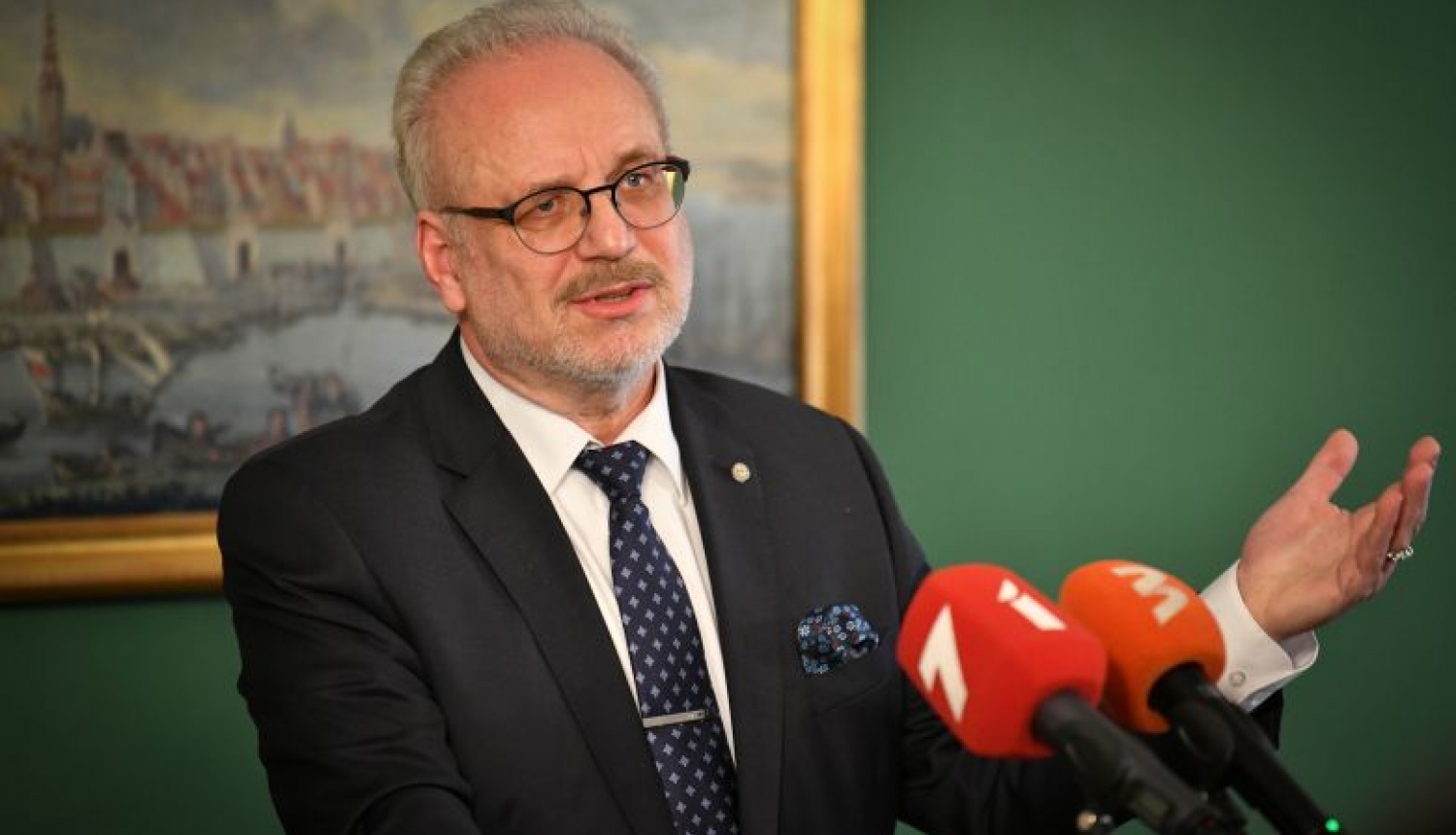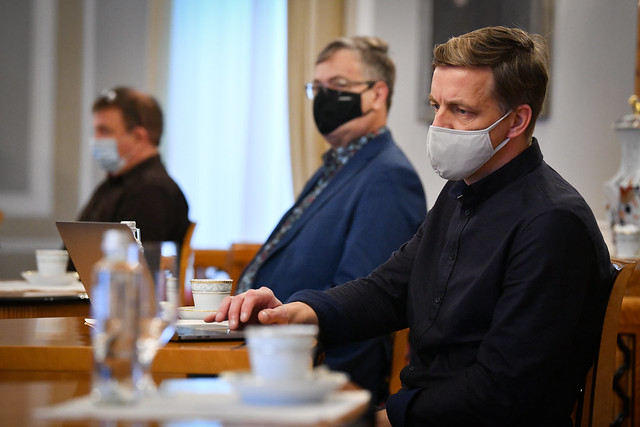This is President Levits’ post-meeting press statement:
‘Good afternoon everyone. Today I had a meeting with representatives of professional associations representing creative industries and experts of Ministry of Culture, Ministry of Finance and the Saeima. We discussed and examined the proposed bill on a new tax regime for creative industry workers and authors receiving royalties. Everyone agreed that we need to review tax regimes applicable to creative professionals and authors who live off royalties. Those working in culture sector need to have adequate level of social protection (pensions, healthcare insurance). Unfortunately, crisis caused by pandemic has clearly showed that level of social security was too low: tax regimes for creative industries and other traditional professions were too moderate to provide sufficient social protection for everyone. We came to a joint conclusion about the necessity to step up social protection available to them. That is one.
Secondly, we need to decide how. We talked about the details of this initiative and I have to be frank with you, and everyone else also agreed, it seems that this legislative initiative lacks essential elements. There is a whole host of unanswered questions that nobody is ready to answer yet. We expect a reform plan to give us all the answers and leave no stone unturned. For example, it is not clear how culture industry professionals with irregular income will pay taxes on regular basis. Such requirement contradicts the principles of taxation. There is a number of challenges that this bill fails to address. I do not think this reform plan is worth further consideration. We need to improve it and make sure it gives answers to all questions.
Thirdly, we need to decide what to do with this reform. We are going through an economic recession and reform envisages tax increase for culture professionals to make them more socially protected. So, we need to decide whether this is the right moment to raise taxes. Such move might be difficult to handle for the sector. Positive effects, which the reform will have in some time must, of course, be acknowledged, yet the question of timing is still very relevant.
Another important aspect is adequate and gradual transition period. One of the principles of good law-making implies adequate and gradual transition to new regimes. So, it is up to parliament to decide how to roll out the reform. This is an essential reform, and as such it must be sufficiently sophisticated. Provisions of its articles should not contradict the terms and conditions regulated elsewhere in legislation. There should be no surprises. That is not what good laws look like. I expect this reform to be thoroughly detailed, with all comments, of course, as good, efficient law-making principle presumes. There should be no grey areas. Full respect of proportionality principle when it comes to achieving objectives of the law is essential. That is what we concluded during today’s discussion.’





